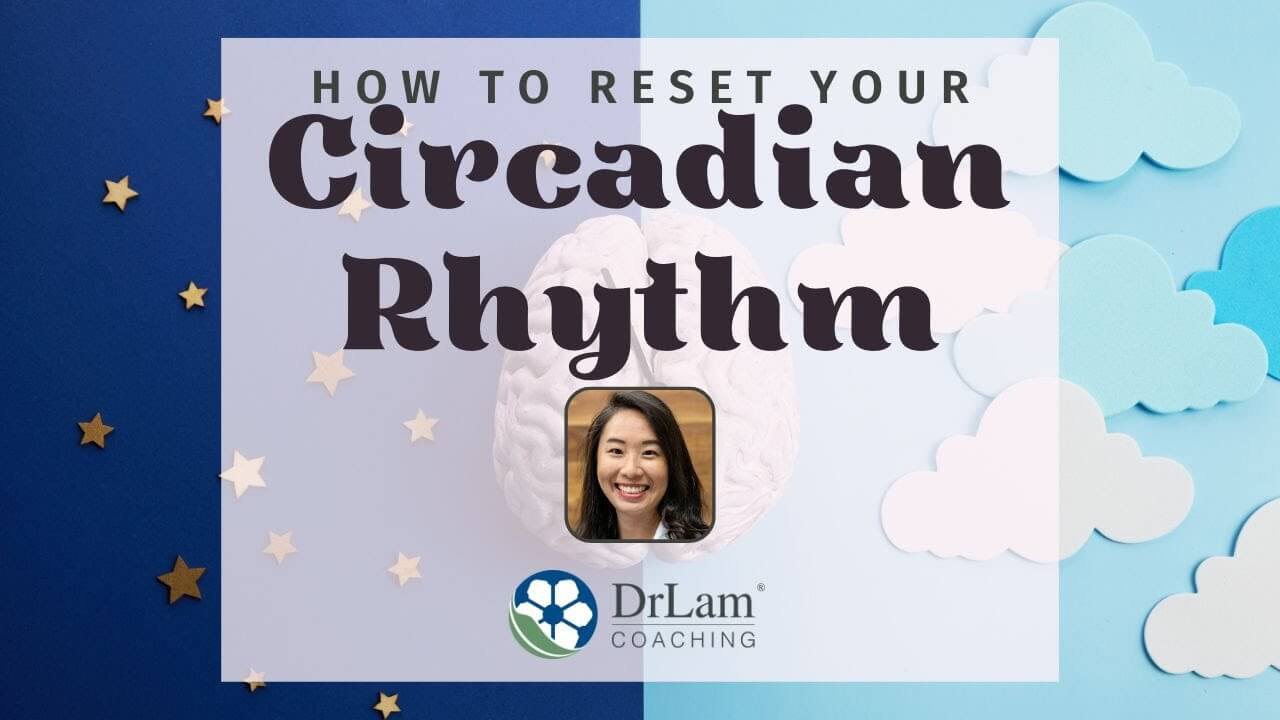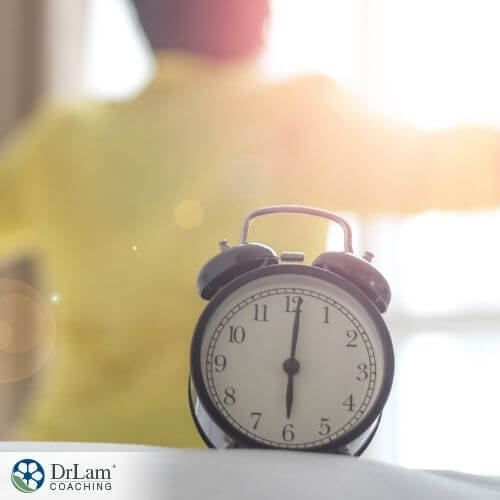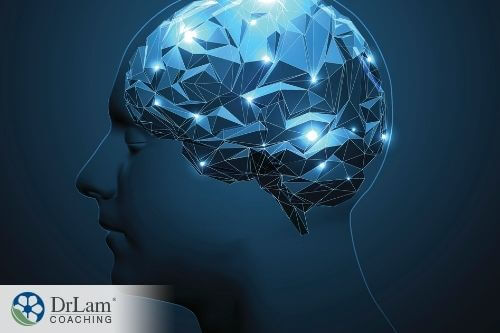
» Read our complete long-read article on biological clock and Adrenal Fatigue Syndrome
» Adrenal Fatigue FAQs
» Take our 3-minute test to see if you may have Adrenal Fatigue
 Your biological clock is actually a network of different clocks that interact to help maintain equilibrium in your body. This includes your circadian rhythm, or your 24-hour biological clock, which regulates things like sleep-wake cycles, body temperature, and endocrine activity. This network is managed by the suprachiasmatic nucleus (SCN).
Your biological clock is actually a network of different clocks that interact to help maintain equilibrium in your body. This includes your circadian rhythm, or your 24-hour biological clock, which regulates things like sleep-wake cycles, body temperature, and endocrine activity. This network is managed by the suprachiasmatic nucleus (SCN).
You can think of your SCN as the “master clock.” It has bidirectional communication with the other clocks in your body to help orchestrate and sync them all together.
Each of these clocks works via genes that trigger the synthesis of proteins. When a gene is switched on, it will synthesize a protein, and the level of that protein follows a cycle, rising and falling rhythmically. That rhythm will then affect the activity of the gene in a kind of feedback loop. Feedback loops are a theme in biological clocks as well as in hormone cycles.
If this gene-protein loop is working properly, the cycle is smooth and follows the ideal pattern for health. If it’s not, then this specific biological clock might be out of sync. That can then cause it to negatively affect other clocks in the body.
The body’s biological clock is connected to the circadian rhythm, and the circadian rhythm is affected by things like light and darkness. This means that one way the clock can get out of sync is due to the light in your environment, which affects sleep. Temperature also plays a role, as do hormones. They all affect each other.
Different clocks are responsible for different things. For example, some are responsible for alertness, mood, sleep, metabolism, and fertility. All these clocks are involved in physical, mental, and behavioral responses. And this is why, if they’re chronically dysregulated, you can end up with serious issues, ranging from anxiety to insomnia to Adrenal Fatigue Syndrome (AFS) to metabolic dysfunction.
AFS is a condition that results when your body is undergoing chronic stress. Chronic stress, from any source, is a major problem in the modern world, and is likely related to a majority of cases of biological clock dysregulation.
Stress triggers your system to try to adapt to it and return to a state of homeostasis, or equilibrium. The mechanism by which it does that is called the NeuroEndoMetabolic (NEM) Stress Response, your body's global response to stress. This stress response has six circuits, composed of three closely related organs and systems each, which highlight how stress in one area can cause symptoms in another. The adrenal glands are part of the NEM’s Hormone Circuit.
And although your biological clock affects and is affected by all six circuits, the first and most involved circuit is the Hormone circuit. The Hormone Circuit is composed of the adrenals, the thyroid, and the reproductive organs. The adrenals are activated via the hypothalamic-pituitary-adrenal (HPA) axis, which acts as a hormone cascade from the brain to the body.
 This hormone cascade begins with the hypothalamus in the brain. The hypothalamus also houses your SCN, or “master clock.” When it gets the message that your body is facing stress, it releases corticotropin-releasing hormone (CRH). CRH then tells the pituitary gland, which is also in the brain, to release adrenocorticotropic hormone (ACTH). ACTH stimulates the adrenal glands to secrete stress hormones.
This hormone cascade begins with the hypothalamus in the brain. The hypothalamus also houses your SCN, or “master clock.” When it gets the message that your body is facing stress, it releases corticotropin-releasing hormone (CRH). CRH then tells the pituitary gland, which is also in the brain, to release adrenocorticotropic hormone (ACTH). ACTH stimulates the adrenal glands to secrete stress hormones.
Cortisol is your body’s main stress hormone. And once it's done its job, any excess cortisol left over by the stress response will then signal to the hypothalamus and pituitary gland that the job is done. They will then stop releasing CRH and ACTH, ending the hormone cascade. This is another feedback loop mechanism.
Like the adrenal glands, the other two components of the Hormone Circuit have their own brain-to-gland hormone cascade. With the thyroid, it’s called the hypothalamic-pituitary-thyroid (HPT) axis. For the reproductive organs, it’s called the hypothalamic-pituitary-gonadal (HPG) axis. There’s also a three-way connection between the components themselves, called the Ovarian Adrenal Thyroid (OAT) axis.
These cascades all have their own biological clocks. The HPA axis is related to the sleep-wake cycle clock. The HPT axis is related to your metabolic clock. And the HPG axis is related to your fertility clock.
Because of all of these connections, and because of how delicate the hormone balance is, changes in the normal functioning of these hormone cascades will affect the functioning of the rest. They will try to compensate, thanks to the body’s need to maintain homeostasis. But if this problem persists, which happens with chronic stress and AFS, systems throughout the body will be at risk of dysregulation.
How this happens when stress is the initiation factor is that, as stress becomes chronic, the adrenals overwork to produce more and more cortisol. After a while, they become exhausted and cortisol output drops. This is what happens in AFS. Symptoms of AFS include fatigue, weight gain, sleep problems, brain fog, anxiety, mild depression, PMS, infertility, estrogen dominance, salt and sugar cravings, unstable blood pressure, and food and drug sensitivities.
The reason the symptoms are so varied is because the Hormone Circuit has an effect on all bodily systems.
But there can be different symptom pictures depending on which component of the Hormone Circuit is more affected. For example, if it’s the adrenal glands, your main symptoms will be fatigue, irritability, and anxiety. When it’s the thyroid, you’ll have more weight issues, depression, and low energy levels. If it’s the ovaries, the more severe symptoms will be brain fog, estrogen dominance, and PMS.
Whichever component is dysregulated the most will have an impact on your circadian rhythm and biological clocks. And in a feedback-loop, your circadian rhythm and biological clocks will also affect your Hormone Circuit and NEM response.
This two-way connection happens right at the head of the HPA axis: inside the brain.
Your brain’s SCN is actually an area inside your hypothalamus. It communicates with other neurons inside the hypothalamus. And it can trigger the activation of the HPA hormone cascade directly. This doesn’t just happen for the sake of a stress response. It also happens as part of the natural sleep-wake and alertness cycles.
 Stress hormones have many jobs. They're not just for fight or flight responses. In fact, the term “stress” can mean both good stress and bad stress. Good stress allows your body and mind to become more alert, active, and energetic. This state is what you need to wake up and go about your day. And how does your body know that this is the time to get up? From the light in your environment.
Stress hormones have many jobs. They're not just for fight or flight responses. In fact, the term “stress” can mean both good stress and bad stress. Good stress allows your body and mind to become more alert, active, and energetic. This state is what you need to wake up and go about your day. And how does your body know that this is the time to get up? From the light in your environment.
Adrenal hormones like cortisol, adrenaline, and noradrenaline naturally rise and fall throughout the day according to the changes in light and darkness. The SCN picks up on these changes and then signals to the different glands in your body to either produce or stop producing the hormones.
The other big hormone involved in your circadian rhythm is melatonin, which is your body’s main sleep hormone. Melatonin is mainly produced by the pineal gland in the brain, although many other cells and organs produce it. When the SCN receives the information from your optic nerve that light is decreasing, it tells your pineal gland to produce more melatonin. And that tells your body that it’s time to sleep. Without sufficient melatonin, you have a harder time falling asleep and staying asleep.
Stress hormones, especially cortisol and melatonin, work together in opposing patterns. Basically, when melatonin is high, your cortisol is low, and vice versa. Both of these hormones have what’s called a diurnal pattern – meaning they repeat a specific cycle every 24 hours.
If all is well, your biological clock delivers the message in the morning that the sun has risen. The SCN then makes the adrenals produce more cortisol and the pineal gland produce less melatonin. Then, as the day advances, cortisol starts to gradually go down until it reaches very low levels when it’s nighttime, so you can sleep. Melatonin, on the other hand, remains low throughout the day and starts to rise at night, reaching its peak around 2-3 a.m.
This cycle is able to adjust to exceptional disruptions as well. For example, let’s say you are facing acute stress, like hearing a loud bang in the evening. Your adrenal glands release a rush of cortisol during a time when cortisol levels should be low. This temporarily throws off your biological clock. You may have a hard time falling asleep. But once the stress is gone, the melatonin-cortisol balance is regained, homeostasis is restored, and your circadian rhythm re-syncs with its 24-hour cycle.
Your body is an adaptation miracle. Its goal is always to reach and maintain homeostasis, the state of optimal balance for optimal functioning. All of your body’s systems, including your biological clock, are geared towards that goal.
Acute stress is something your body was built to deal with. Then, it needs to return to homeostasis after the stress. It was not built to deal with chronic stress. Chronic stress is one of the biggest problems of modern living.
With chronic stress, the adrenals have to keep releasing higher levels of cortisol. This disrupts the ability of your circadian rhythm to stay in sync. This is one of the reasons that sleep disturbances are so common in AFS, and why they are one of the most difficult aspects of the recovery process. When AFS is advanced, you need a lot of sleep but you find it difficult to get it. And you can wake up without feeling rested and refreshed.
Chronic stress can also cause a roller coaster in cortisol levels. It could be high at night and wake you at around 2-3 a.m., when melatonin should be at its peak instead. Then it drops during the day, making you feel drowsy and tired when you should be alert. The resulting sleep problems then add to the chronic stress on the body.
 As your biological clock dysregulates further, your HPT axis might follow suit, affecting metabolism. The thyroid is responsible for your basal metabolic rate, body temperature, blood pressure, and even heart rate. If it dysregulates, it will affect all of these functions. The result is hypothyroidism or hyperthyroidism, both of which can have massive consequences for your health.
As your biological clock dysregulates further, your HPT axis might follow suit, affecting metabolism. The thyroid is responsible for your basal metabolic rate, body temperature, blood pressure, and even heart rate. If it dysregulates, it will affect all of these functions. The result is hypothyroidism or hyperthyroidism, both of which can have massive consequences for your health.
The more common of the two, especially if you’re dealing with adrenal fatigue, is an underactive thyroid. That means your metabolism will slow down, you’ll have lower body temperature, and your body won’t be converting glucose into energy properly.
The HPG and OAT axes are also vulnerable to dysregulation. High levels of cortisol production will start to decrease progesterone production. This leads to estrogen dominance, which is the relative dominance of estrogen over progesterone. Just like how cortisol and melatonin oppose each other, so too do estrogen and progesterone.
Each hormone is responsible for different aspects of a woman’s fertility cycle and biological clock. Too much estrogen can throw off those cycles and lead to health issues. These can include PMS, weight gain, fibroids, infertility, pre-menopausal syndrome, endometriosis, endometrial cancer, bone loss, fibrocystic breast disease, and breast cancer.
Men, likewise, can experience an imbalance of estrogen and testosterone, with its own set of problems.
This spiral of biological clock dysregulation can start with any of the three Hormone Circuit components.
Getting your biological clock back on track has to do with creating a recovery plan that flows with your natural 24-hour circadian rhythm. This 24-hour cycle is divided into seven parts. Each of these parts calls for specific supplements and strategies that suit it.
This is an example of such a protocol.
However, we do NOT recommend you attempt to use it yourself. Chronic biological clock dysregulation requires an experienced health professional to adapt this protocol to your specific condition and needs. Otherwise, you are at risk of making things worse.
If your biological clock is disrupted, and you have AFS, for example, you might wake up feeling wired and tired already. This means your stress hormones were high during the night. If you wake up drowsy and stay drowsy for quite some time, this means these hormones were low and didn’t rev up as they should. You can get your cortisol tested throughout the day to figure out what’s going on exactly.
Either way, the problem began during sleep. And we’ll get to that phase later. For this phase, there are a few recommendations:
 When your biological clock isn’t working properly, you might end up with an energy slump now, even though this is the time when you should have a lot of energy. This is where you might rely on coffee or sweets, which could end up making things worse. So instead of that, here’s what to do:
When your biological clock isn’t working properly, you might end up with an energy slump now, even though this is the time when you should have a lot of energy. This is where you might rely on coffee or sweets, which could end up making things worse. So instead of that, here’s what to do:
Lunchtime poses a risk if you eat too much or eat the wrong foods. This risk is already lowered a lot if you’ve followed the guidelines for the above two phases, as you won’t be overly hungry or tired. Now it’s time to pack a real punch with this meal:
It’s natural to have an energy dip here, but don’t give in to the desire for caffeine or sweets to get through it. Instead, you should allow this afternoon slump to take its course and adapt to it. For example:
This is when your stress hormones should really start to decrease. This is the time your body is winding down and preparing for the next phase, the sleep rhythm. But first, do the following:
This phase is one of the most impactful on your biological clock. If you follow the recommendations here, you can reset your Hormone Circuit’s balance and recover much faster:
 With AFS and a dysregulated biological clock, you might find yourself waking up between 2-3 a.m. and not being able to fall back to sleep easily. If that’s the case, taking some of the above supplements in a time-release form might benefit you. But, ultimately, it’s the patience and consistency with the protocol that will lead to the best results.
With AFS and a dysregulated biological clock, you might find yourself waking up between 2-3 a.m. and not being able to fall back to sleep easily. If that’s the case, taking some of the above supplements in a time-release form might benefit you. But, ultimately, it’s the patience and consistency with the protocol that will lead to the best results.
» Read our complete long-read article on biological clock and Adrenal Fatigue Syndrome
» Adrenal Fatigue FAQs
» Take our 3-minute test to see if you may have Adrenal Fatigue
Your biological clock is what makes sure your body is working with its natural cycles. If it gets thrown off for any reason, you may notice changes in your sleep, metabolism, fertility, and many other issues. This can happen due to chronic stress and AFS, but it can also cause AFS. Whichever is the case, you can hit two birds with one stone by following an AFS-recovery protocol that aligns with your circadian rhythm.
However, be aware that there are many pitfalls to beginning a protocol with supplements like this on your own. It's possible to end up worsening your condition and throwing off your natural rhythms even more. That's why it's best to see a medical practitioner with experience in this area.
If you have questions about your biological clock, your hormones, or AFS, you can contact the Dr. Lam Coaching team. We can offer you a free** no-obligation phone consultation at +1-626-571-1234 where we will privately discuss your symptoms and what your options are. You can also send us a question through our Ask The Doctor system by clicking here.
Your biological clock is a network of different natural rhythms throughout your body. They are controlled by a “master clock” in the brain that responds to things like light/darkness, temperature, and hormone levels. Hacking it can help you improve your health many times over.
"Many thanks for your valued insight."
"Many thanks for your valued insight. I look forward to reading your contributions along the way."